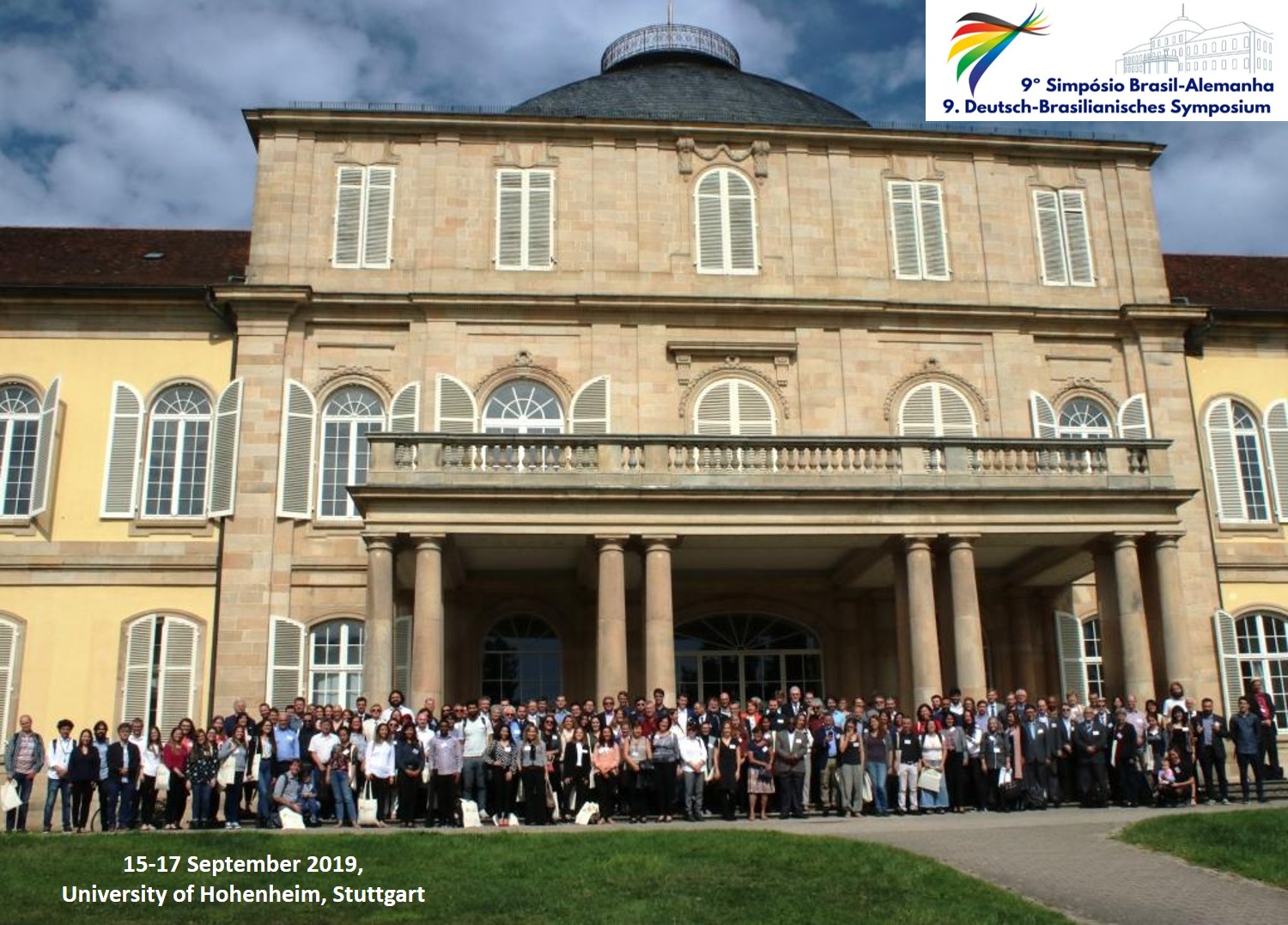Deutsch-Brasilianisches Symposium 2019
German-Brasilian Symposium 2019
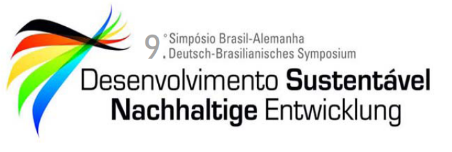
Great interest in the 9th German-Brazilian Symposium
230 participants at the University of Hohenheim discussed bi-national and global progress towards sustainable development
Photo: Participants of the 9th German-Brazilian Symposium on Sustainable Development in front of the Hohenheim Castle.
The 9th German–Brazilian Symposium on Sustainable Development was successfully held from 15-17 September 2019 at the University of Hohenheim. Under the topic “Integrating Systems for Sustainable Development - Linking Human and Natural Components” more than 230 participants from science, politics, economy and society participated at this interdisciplinary bi-national event.
The Symposium was opened by Georg Cadisch (Director of the Hans-Ruthenberg-Institute for Tropical Agriculture at the University of Hohenheim), Andreas Pyka (Vice President, University of Hohenheim), Peter Grathwohl (Vice President, University of Tübingen, Hans-Georg Wolf (State Ministry of Science, Research and the Arts of Baden-Württemberg, and the General Consul of Brazil in Munich, José Mauro da Fonseca Costa Couto. All speakers emphasized the importance of this Symposium for both countries to continue the bi-national dialog for sustainable development. Following the opening ceremony the two keynote presentations by Ulrich Glasmacher (University of Heidelberg) and Folkard Asch (University of Hohenheim) provided important impulses for in-depth discussions about challenges related to global climate change and food security.
The Symposium organization presented a well selected scientific program with pre-conference excursions and social evening events intending to provide an open and pleasant atmosphere for exchange and discussions. With more than 150 contributions in 15 oral and 3 poster sessions the Symposium was offering a great variety of topics focusing on natural sciences and biodiversity, agriculture and forestry as well as economical, social and environmental aspects. It was consensus that most challenges towards sustainable development are interlinked and therefore demand holistic and cross cutting solution approaches. Improving our understanding of how natural and human components interact in complex environments will be essential for moving forward towards sustainable systems integration. The participants agreed that this event greatly contributed to the development of new concepts and research questions for joint activities which will translate into exciting future partnerships in research or educational projects.
In the section on binational programs and cooperation Heloísa Hollnagel and Pablo Gabriel Ferreira (CAPES, Coordination for the Improvement of Higher Education, Brasil), Jochen Hellmann (DAAD, German Academic Exchange Service, Rio de Janeiro), Dietrich Halm (DFG, Deutsche Forschungsgemeinschaft), Marcio Weichert (DWIH-SP, German Centre for Research and Innovation São Paulo), Sonja Dube (bw-i, Baden-Württemberg International) and Maria do Carmo Martins Sobral (the Brazilian-German network Rebralink) presented different funding options and exchange programs to support the international cooperation between Brazil and Germany for the coming years.
The closing session was chaired by Rainer Radtke (Brazil Center of the State of Baden-Württemberg, University of Tübingen) and Marcus Giese (Hans-Ruthenberg-Institute, University of Hohenheim). Vitoria Da Riva from the Ecological Foundation Cristalino, presented her pioneer activity in combining nature conservation and eco-tourism in Brazil. Eckhard Kupfer from the Martius-Staden-Institute São Paulo, reported interesting details on occasion of the 200 year jubilee of the famous Spix and Martius expedition. Josef Settele from the Helmholtz-Centre for Environmantal Research - UFZ, Leipzig shared his experiences as a leading scientist compiling the Global Assessment for the Intergovernmental science-policy Platform on Biodiversity and Ecosystem Services (IPBES). Finally Georg Cadisch closed the 9th German-Brazilian Symposium and handed over to the Federal University of Rio de Janeiro (UFRJ), which together with the Federal University of Niteroí (UFF) will be the host of the upcoming 10th German-Brazilian Symposium on Sustainable Development in 2021.
Acknowledgement: The 9th Symposium was jointly organized by the Institute of Agricultural Sciences in the Tropics (Hans-Ruthenberg-Institute) at the University of Hohenheim, the Baden-Württembergischen Brasilien-Zentrum in Tübingen, and Baden-Württemberg International (bw-i). We thank CAPES (Coordination for the Improvement of Higher Education Personnel, Brazil), DWIH-SP (Deutsches Wissenschafts- und Innovationshaus, São Paulo) und bw-i (Baden-Württemberg International), and Andreas Stihl AG & Co. KG for their financial support.
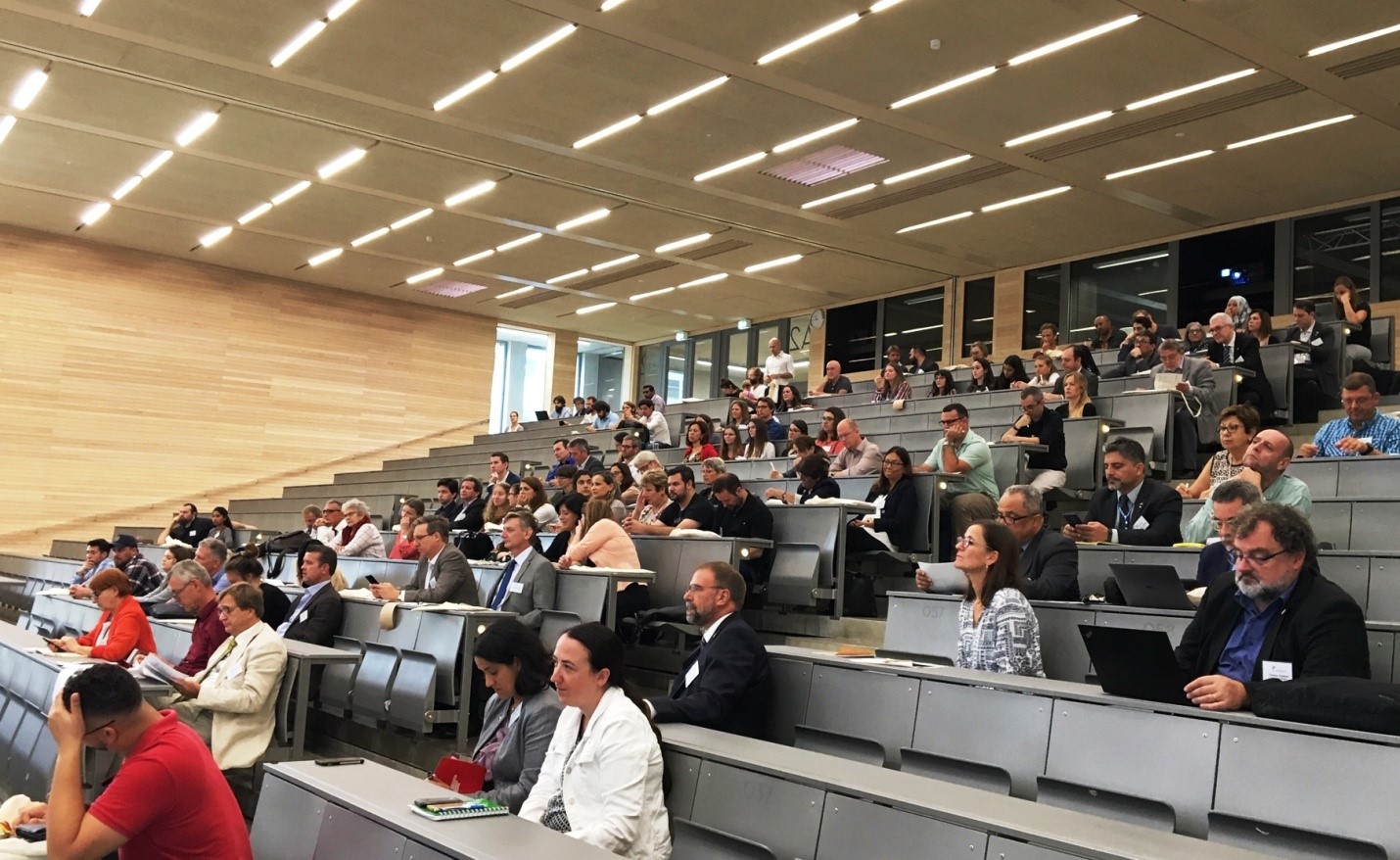
Photo: Under the topic “Integrating Systems for Sustainable Development - Linking Human and Natural Components” more than 230 participants from science, politics, economy and society participated at this interdisciplinary bi-national event.
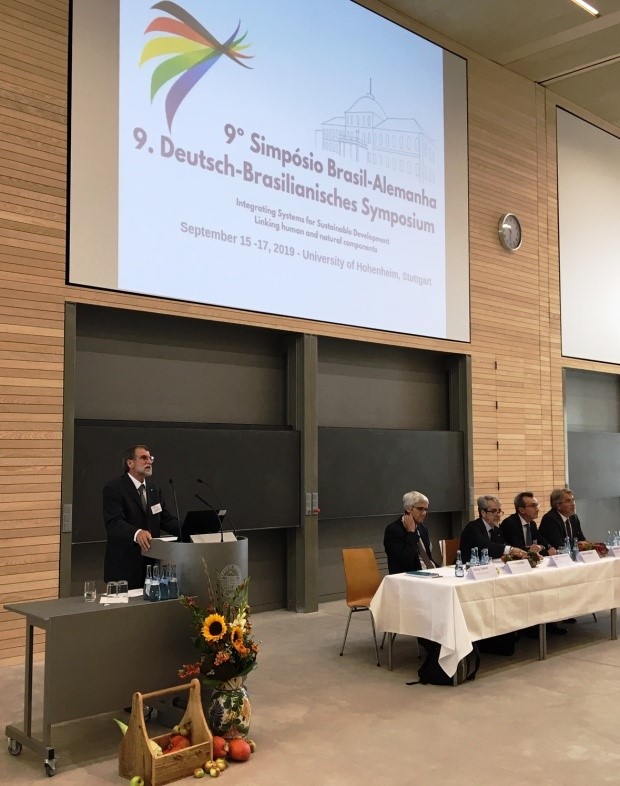
Photo: The Symposium was opened by Georg Cadisch, (Director of the Hans-Ruthenberg-Institute for Tropical Agriculture at the University of Hohenheim), Andreas Pyka (Vice President, University of Hohenheim), Peter Grathwohl (Vice President, University of Tübingen, Hans-Georg Wolf (State Ministry of Science, Research and the Arts of Baden-Württemberg, and the General Consul of Brazil in Munich, José Mauro da Fonseca Costa Couto.
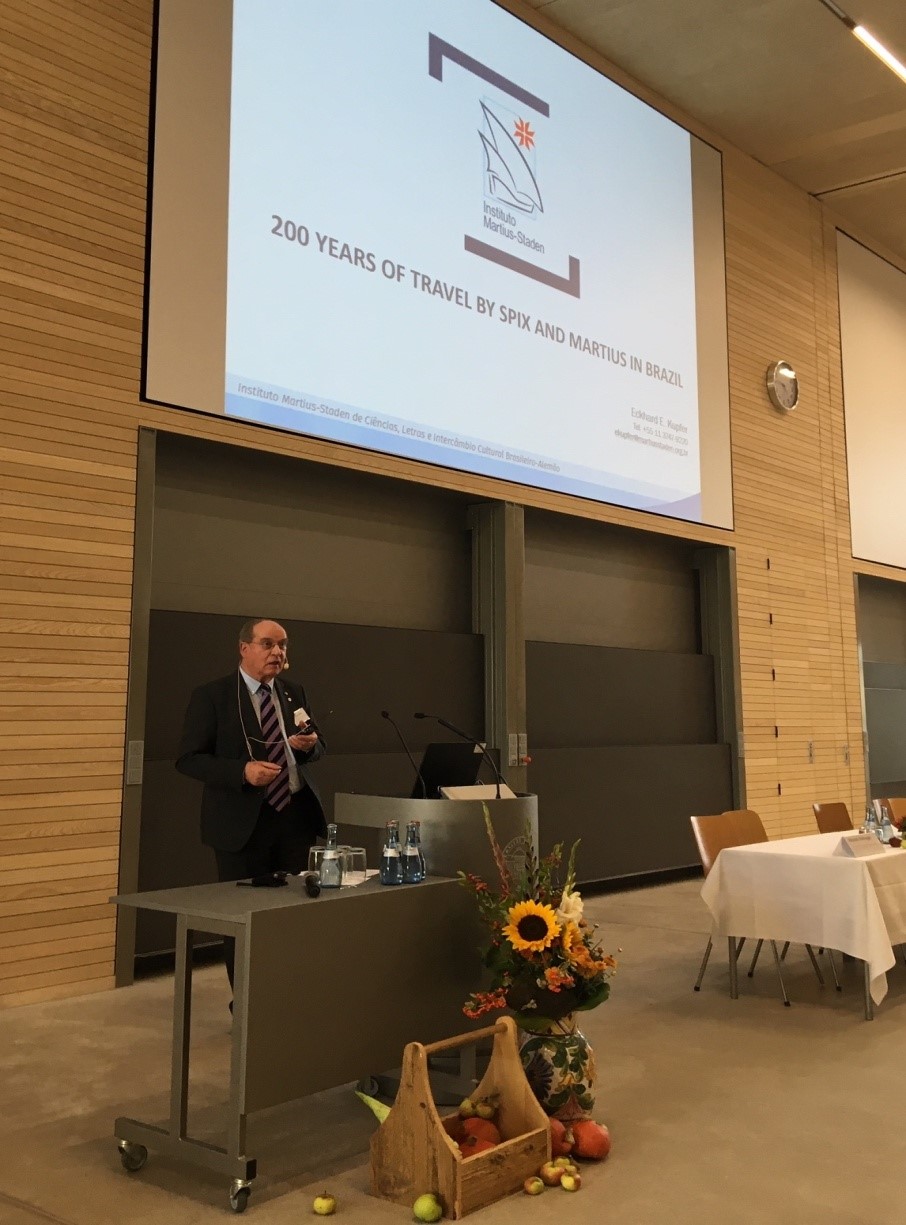
Photo: Eckhard Kupfer from the Martius-Staden-Institute São Paulo, reported interesting details on occasion of the 200 year jubilee of the famous Spix and Martius expedition.
German-Brasilian Symposium 2019

University of Hohenheim, September 16-17, 2019
The Brazilian Center of Baden-Württemberg cordially invites all scientists to the ninth German-Brazilian Symposium on Sustainable Development, held from September 16 to 17, 2019, at the University of Hohenheim. The Symposia are a continuation of successful workshops that since 2003 have been alternately taking place in Germany and Brazil, every two years.
This year, the Symposium will focus on the complexity of linking human and natural components in integrating systems for sustainable development in Brazil and Germany. Experience a unique gathering, exchange your ideas and experiences among participants, and disseminate your research related to one of the following major topics:
- Natural Sciences and Biodiversity
- System Integration for Sustainable Agriculture and Forestry
- Economic, Social and Environmental Challenges
All relevant information including session topics, abstract submission, and registration can be found at our website.
We would enjoy the opportunity to welcome you at the Symposium at the University of Hohenheim this September.

